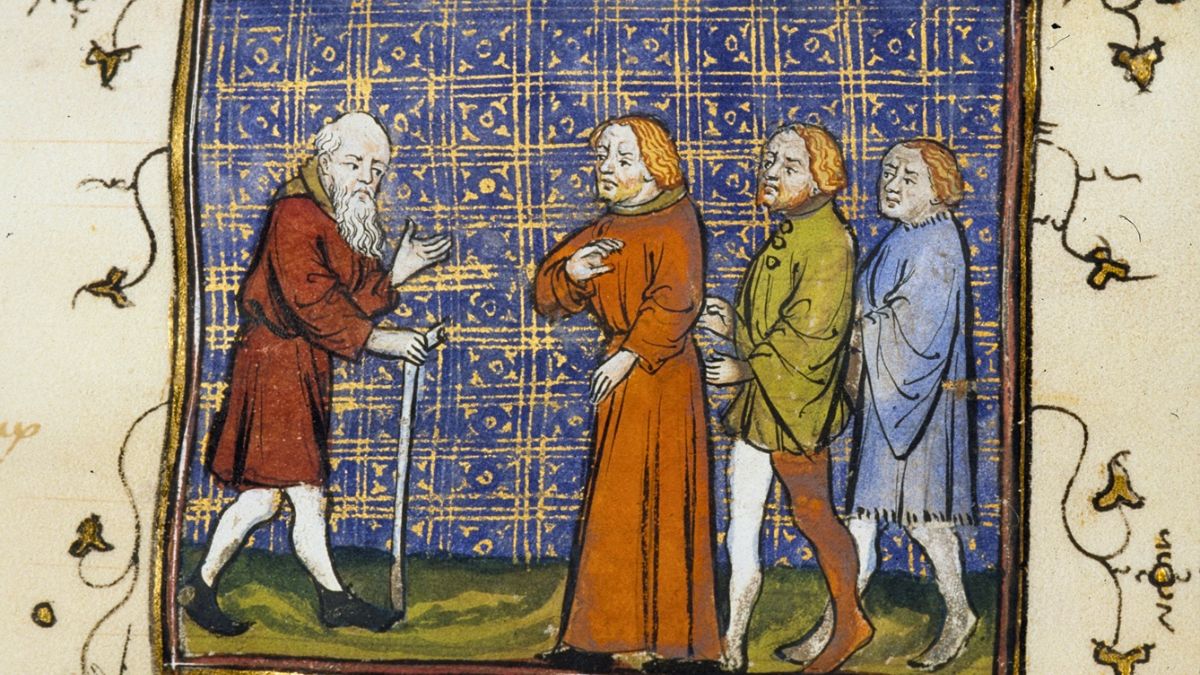We often throw around everyday expressions without giving much thought to where they came from. But did you know that many of these phrases have roots that stretch all the way back to the medieval world? From knights in armor to old English laws, these sayings are more than just quirky turns of phrase—they’re time capsules from a very different era. Let’s look into 20 expressions still in use today that were born in the Middle Ages.
Table of Contents
Eye
The apple of one’s eye sounds poetic, right? In Old English, the pupil of the eye was literally called the apple, seen as a tiny round object worth protecting. Because of that, it became a way to describe someone precious or deeply loved—even King Alfred used it.
Dozen
A baker’s dozen isn’t just a bonus donut. Back in 1262, laws cracked down on bakers who shortchanged customers. To avoid penalties, bakers started tossing in a 13th loaf when selling a dozen. Problem solved—and a phrase was born.
Flattery
To curry favour may sound strange, but it began as curry favel—literally grooming a horse named Fauvel in a 14th-century French allegory. Fauvel represented deceit, and those currying him were flattering him for personal gain. Eventually, the phrase shifted to mean buttering someone up for advantage.
Advocate
Playing devil’s advocate isn’t just for argument’s sake—it was an actual job. The Roman Catholic Church appointed someone to argue against canonizing a saint, ensuring every case was deeply examined. The Latin title? Advocatus Diaboli.
Challenge
To throw down the gauntlet came from literal knightly duels. If a knight wanted to fight, he’d throw his metal glove—his gauntlet—on the ground. Accepting meant picking it up. Imagine settling arguments like that today.
Means
By hook or by crook was about collecting firewood. Medieval laws allowed people to gather dead branches from common land—just not by cutting them down. A hook or crook was legal; an axe was not.
Alarm
Hue and cry goes back to 12th-century England. If you saw a crime, you had to yell loudly—literally hue (shout) and cry—to get the community involved in chasing down the criminal.
Savings
A nest egg wasn’t about money at first. Farmers would leave a real egg in the chicken’s nest to encourage hens to keep laying. Over time, it evolved to mean a small amount saved to grow into something bigger.
Calendar
A red-letter day was a literal thing in medieval church calendars. Feast days and saints’ days were written in red ink to stand out from ordinary days marked in black.
Verdict
To sink or swim came from trial by water. Suspected criminals were thrown into water—if they floated, they were guilty; if they sank, they were innocent (but likely drowned). A grim way to test justice.
Territory
No man’s land might conjure WWI images, but the term dates back to the Domesday Book in the 11th century. It described land owned by no one, often avoided or used for grim purposes like executions.
Glitter
All that glitters is not gold was around long before Shakespeare. Medieval poets like Alain de Lille and Chaucer warned not to trust shiny appearances. A lesson in looking deeper.
Madness
Stark raving mad combines two strong medieval words—“stark” meaning intense, and “raving” from Latin for madness. Put together, they described someone completely unhinged.
Culture
More Irish than the Irish themselves came from medieval Normans in Ireland. These settlers embraced Irish customs so thoroughly, English authorities worried and even tried to outlaw it.
Bonds
Blood is thicker than water has a twist. The older version implied that blood relations—your kin—are stronger than ties formed through baptism, or water. Family first, even back then.
Dogs
Let sleeping dogs lie is classic medieval wisdom. Chaucer even said it in his poetry: don’t stir up old troubles or you might regret it. Some things are best left alone.
Roses
A bed of roses sounds lovely, and it was. In Le Roman de la Rose, a medieval poem about love, roses symbolized pleasure and desire. Over time, it came to mean an easy or delightful life.
Names
Tom, Dick and Harry are your go-to generic names now, but the idea is ancient. The Romans had Titius, Gaius, and Sempronius as placeholders. Different names, same idea.
Rot
One bad apple spoils the barrel was literally true in medieval storage. Chaucer referenced it in The Cook’s Tale—a bad servant could corrupt a whole household. Moral? Remove the rotten early.
Imagination
In my mind’s eye shows up in 12th-century writings and Chaucer too. It means visualizing something in your imagination—your inner vision. Even today, it’s how we dream, plan, and picture possibilities.
These phrases have survived centuries, evolving with the language but retaining their original spark. They show us that even in our most casual conversations, we carry a bit of medieval wisdom, poetry, and practicality with us. Next time you use one of these sayings, remember—you’re speaking a little piece of history.
FAQs
What does ‘apple of one’s eye’ mean?
It means someone cherished or deeply loved.
Why is 13 a baker’s dozen?
To avoid penalties for underweight bread in medieval times.
Where did ‘devil’s advocate’ originate?
It came from the Catholic Church’s canonization process.
What was ‘hue and cry’?
A medieval system for catching criminals using loud shouts.
What is the origin of ‘sink or swim’?
It comes from medieval trial by water for innocence or guilt.















